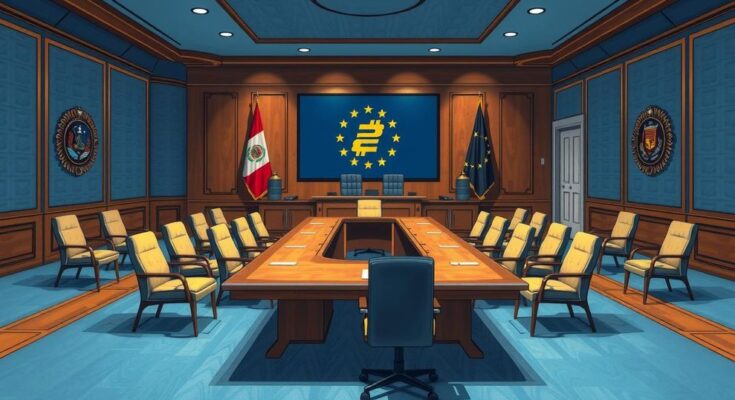Argentina’s lower house of Congress approved President Milei’s decree to support a new IMF deal. The legislation, which only required one chamber’s approval, facilitates the announcement of programme details. Protests against the government continue amidst broader economic concerns, particularly regarding pension issues and market volatility.
Argentina’s lower house of Congress has ratified President Javier Milei’s emergency executive decree that supports a new agreement with the International Monetary Fund (IMF). This crucial legislative approval, obtained with a 129-108 vote and six abstentions, allows for the formal announcement of the programme’s details. The decree only required approval from one congressional chamber to take effect.
To initiate a new IMF programme, Argentina must secure congressional approval, with ongoing negotiations still in progress. Key aspects of the deal, however, remain undisclosed at this time. Recent discussions have heightened expectations for potential shifts in currency policy, causing the Argentine peso to depreciate significantly to its lowest value in over five months on the parallel market.
Economy Minister Luis Caputo made efforts to reassure market sentiment through a media interview but refrained from discussing specific future policy changes. Concurrently, protests have erupted outside Congress, fueled by retirees voicing concerns over reduced pensions, with tensions escalating recently as football fans joined the dissent, leading to violent incidents and over 100 detentions during protests on March 12.
The Milei administration contends that the proposed IMF programme will primarily focus on easing the Central Bank’s debt obligations to the Treasury, thereby reducing the overall national debt. The government asserts that its dire economic circumstances necessitate the utilization of a decree to secure the deal rather than undergoing the standard congressional approval process. Argentina stands as the largest debtor to the IMF, and this new agreement would mark its 23rd institutional accord with the Fund, the highest by any nation.
In summary, Congress’s approval of President Milei’s decree marks a significant advancement in Argentina’s negotiations with the IMF for a new financial programme. This development underscores the urgency of addressing the country’s economic challenges while highlighting the tensions surrounding protests against fiscal policies. The government’s strategy asserts that borrowing will ultimately alleviate debt burdens, although details remain scarce pending further negotiations with the IMF.
Original Source: batimes.com.ar




